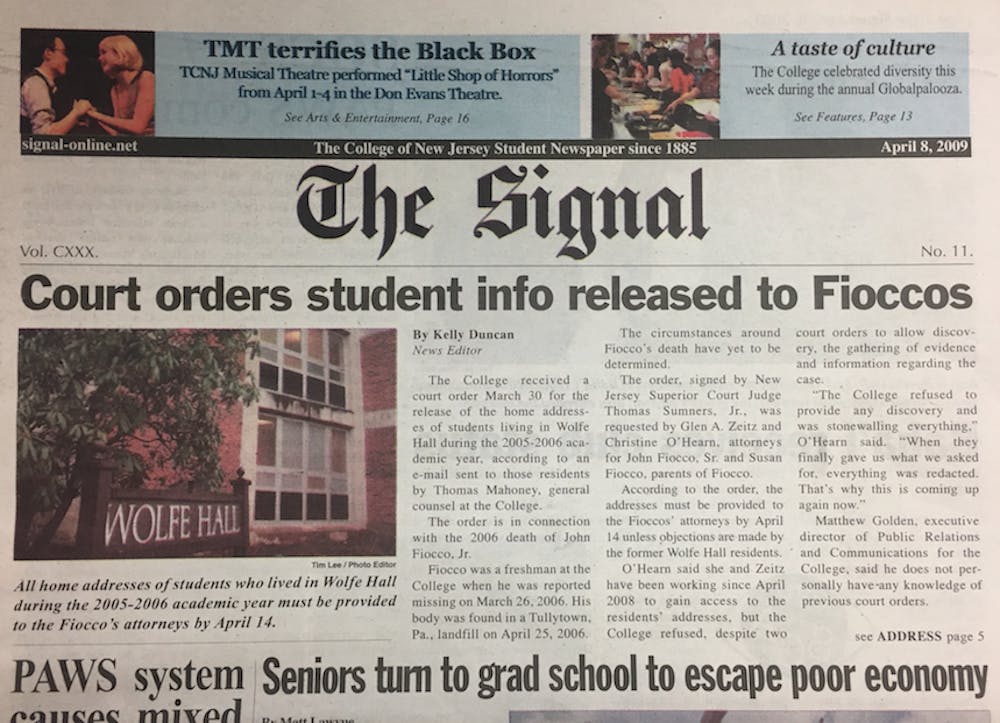Every week, Features Editor Alyssa Gautieri hits the archives and finds old Signals that relate to current College topics and top stories.
In 2009, College officials noticed an increase in students pursuing postgraduate education, including those who enrolled in master's programs or took at least one additional course after getting their bachelor’s degree. The increase was attributed to the poor economic conditions and students’ fear of unemployment. While the economy has slowly recovered through the years, current students still worry about finding a job after graduation. This week, Social Media Editor Ashton Leber spoke to current students about their concerns regarding jobs after graduation.

In a comparison of the College’s graduating Classes of 2007 and 2008, there is a 5 percent increase in the number of seniors who enrolled in graduate courses after completing their undergraduate education.
Recent data for the Class of ’08, compiled by the National Student Clearinghouse (NSC), a nationwide database of admissions data, shows 29 percent (417 out of 1,418) pursued further study. This is an increase from 24 percent (327 out of 1,349) from the NSC data of the Class of ’07.
Ceil O’Callaghan, Interim Associate Dean of Students and Director of Career Services, labeled the 5 percent increase as “significant.”
She expects this upward trend to continue for the Class of 2009, “due to the economic conditions.”
“If (students are) concerned about the job market and thinking of grad school as a way of staving that off, at least meet with a career counselor,” O’Callaghan said. “Don’t just go to grad school to stave off the job market.” She believes this may leave students overqualified for some things and underqualified for others.
O’Callaghan does believe graduate school should be an option if students know what they want to do or if they need a graduate education for a future line of work.
The NSC data does not reflect the number of students who enrolled in graduate programs but rather the number of graduating seniors and the schools in which they took courses.
The number of students selecting the College for Graduate School has grown significantly from 47 to 115, a 200 percent increase from 2007 to 2008. O’Callaghan believes this bump is due in part to the way Career Services now records data.
Along with the data, O’Callaghan said she is witnessing an increased “concern” and “fear” in the students who come to Career Services for help. Matt Pihokker, senior English literature and classical studies major, is experiencing this.
“I’m trying to stay in school just because the job market is so terrible,” Pihokker said. “In talking to a bunch of family and people currently in grad school it was strongly suggested to stay in school.” Pihokker has applied to three post-baccalaureate programs.
However, not all students are letting the recession alter their plans. In the case of Sean Hiki, a member of the College class of ’08 and currently a graduate student at the College studying secondary education and English, he applied before dramatic signs of a worsening economy emerged.
“I had been planning for a few years to go right into grad school for education after I graduated, and I bullishly stuck to my plans,” Hiki said. “Also, I had applied in March of last year, and as far as I knew at the time, there was no indication there was going to be a bad recession.”







